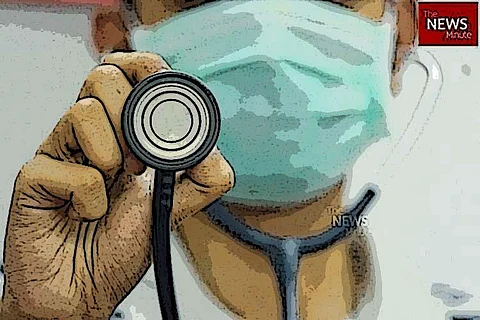

What started as an investigation into the illegal sale of a kidney in Andhra Pradesh’s Visakhapatnam has panned into a district wide search for evidence of a potential organ trafficking racket.
Last Saturday, Visakhapatnam District Collector K Bhaskar ordered the District Medical and Health Officer (DMHO) to shut down Sraddha Hospital in the city, after a committee found several discrepancies in the records of kidney transplants conducted at the private hospital. A three-member-committee comprising of District Medical and Health Officer Dr S Tirupathi Rao, District Coordinator for Hospital Services (DCHS) Nayak and King Goerge Hospital Superintendent Dr L Arjuna submitted its report on Sraddha Hospital, following which the hospital was ordered to be shut down.
“There is a lot of discrepancy in their paperwork regarding some of the kidney transplants which have taken place at the hospital. We have informed the Collector about this matter,” stated Dr Arjuna to TNM.
Following this, officials have asked the committee to examine all kidney transplants done in private hospitals across the city in the past 5 years. The committee will begin investigating ten hospitals in the city from Tuesday and submit a detailed report of its findings to the Collector.
According to sources, the issue arose with a complaint alleging that a man had been duped of his kidney after being promised that he would be paid for the organ. As organ donations in India cannot be done with monetary incentives as per the law, officials began probing the case which led to several questions being raised about the transplants being performed at hospitals in the city.
Sources estimated that almost half of the 60 kidney transplants performed at Sraddha Hospital in the last few years alone did not have proper documentation and have led to speculation that the organs may have been obtained through illegal means. Some reports have alleged that people from underprivileged socioeconomic backgrounds were being recruited with promises of a monetary gain in exchange for their kidney.
India’s laws on organ donation
So what does the law exactly state about transplants?
Transplant of human organs and tissues first began in India in 1962. The unregulated nature of the process led to widespread trafficking of organs. In response to this, the Transplantation of Human Organs Act was passed in 1994. The goal of the act was to regulate how organ transplantation occurred as well as to prevent commercial sales of human organs.
Organ donations can be one of two types: those from a living donor and those from a deceased one. There is an extensive process for anyone who opts to donate one of their kidneys. This not only includes a series of medical tests to best determine the compatibility between the donor and recipient, but also includes psychological evaluation to ensure that the donor is aware of possible consequences, risks and generally aware of their actions.
People may also opt to donate their organs after death. In the event of a deceased donation, a team of medical experts is called in to assess the individual’s condition and their organs prior to harvesting the organs.
The central government maintains a registry of the donors and recipients of human organs and tissues.